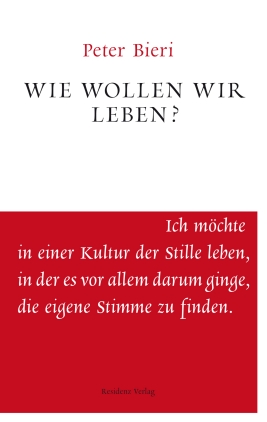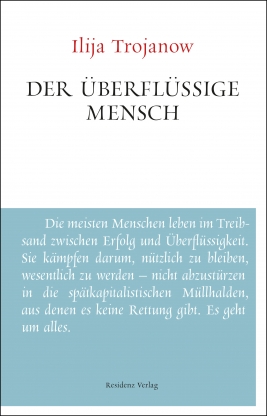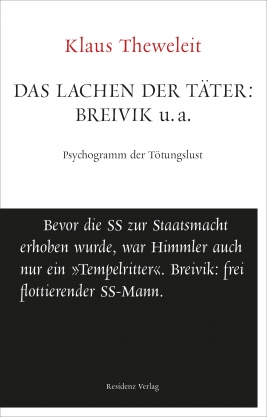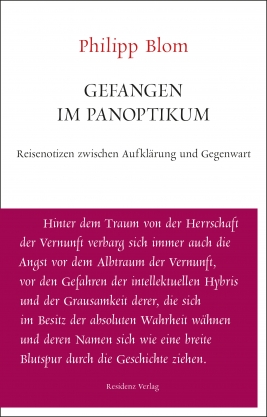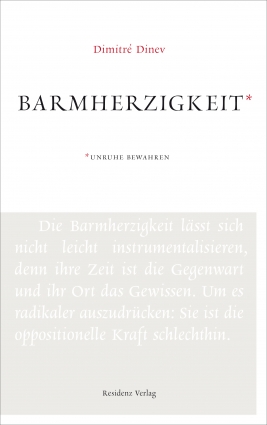
Dimitré Dinev - Merciful
Anachronistic subjects revisited
Being merciful – what role does this term play in our society today? Or does it no longer play a role at all? In four short essays, Dimitré Dinev investigates this subject. He tells of personal experiences, of beggar-children who were hauled off to the West to serve Capitalism, of a country where people speak of security instead of freedom… Dimitré Dinev illustrates a society that cannot be merciful and confronts it with a person who is willing to take on responsibility. He pointedly beds this responsibility in parable-like stories, questions and striking subjects. “Barmherzigkeit” is the first of the series “Unruhe bewahren”, which was developed in cooperation with the Akademie Graz.
Book details
from the series "Keeping Uncalm"80 pages
format:140 x 220
ISBN: 9783701731473
Release date: 17.02.2010
License rights
- World rights available






